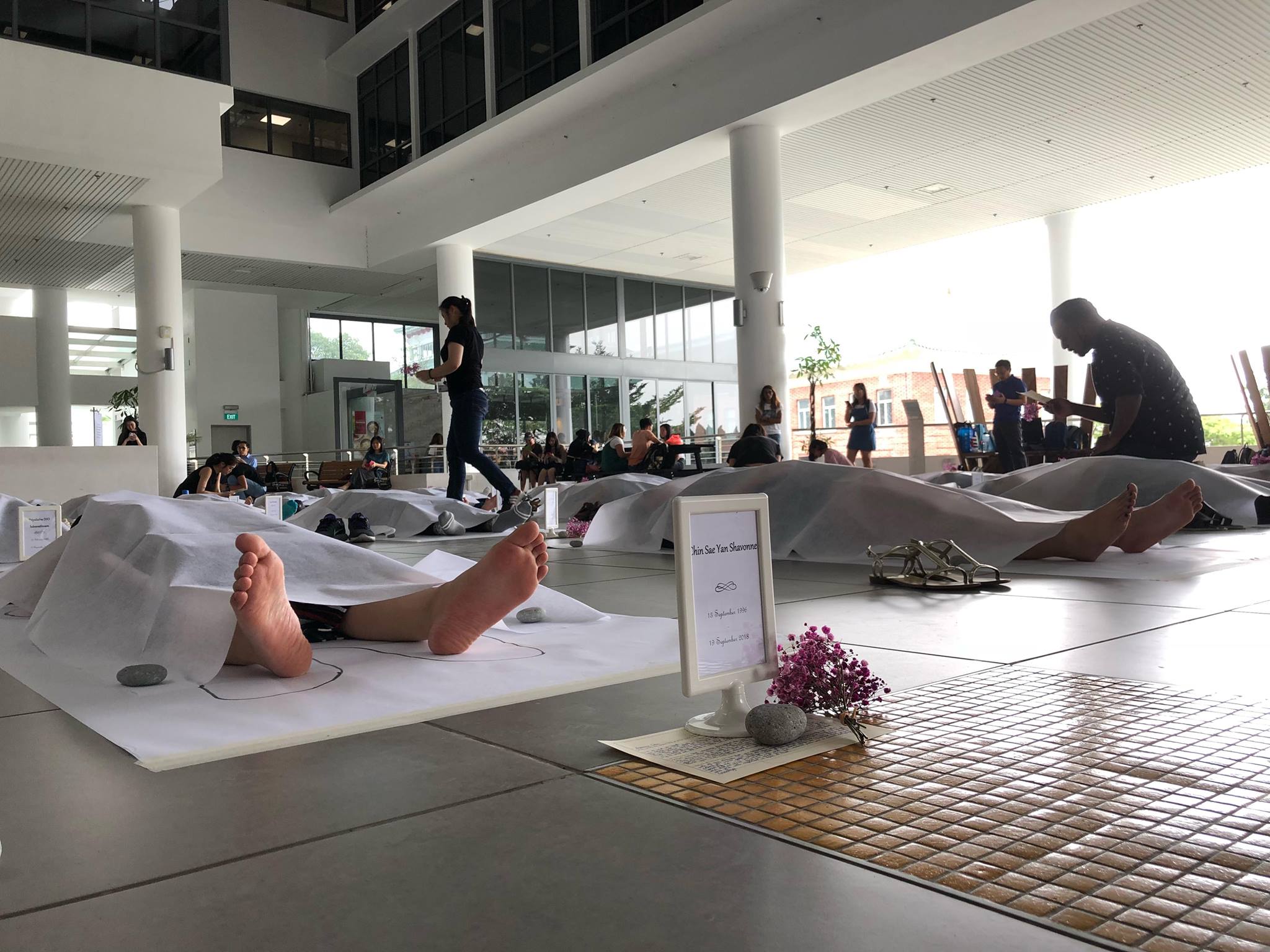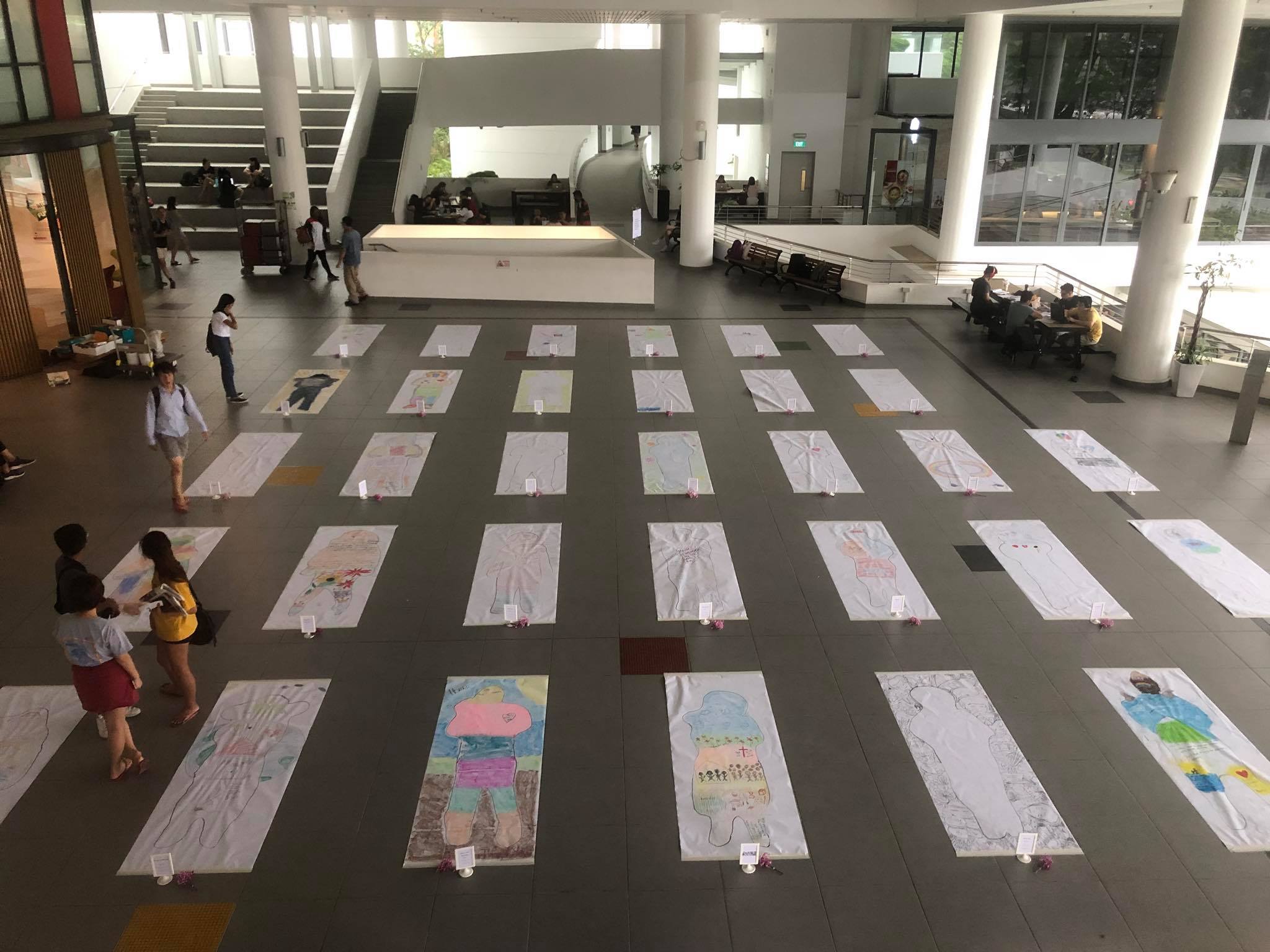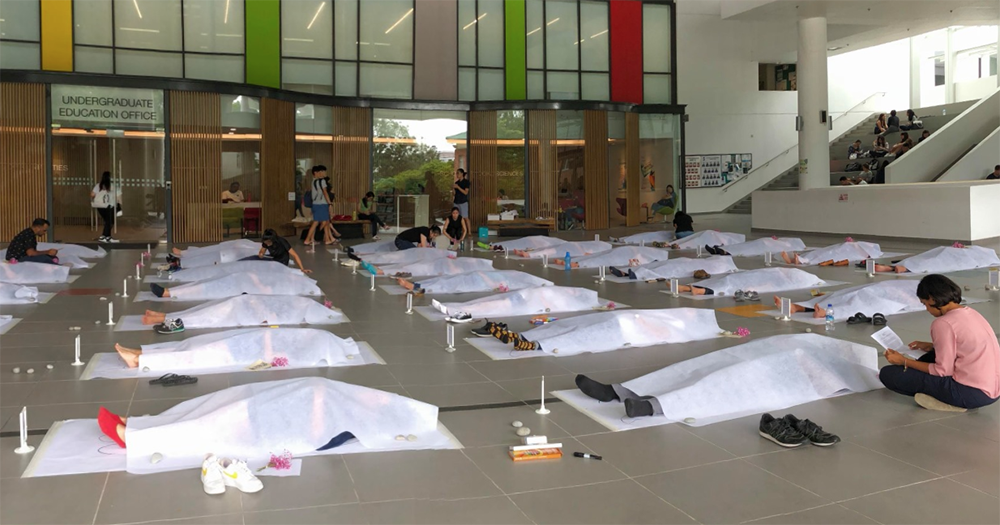For 30 minutes on Sept. 19, the foyer of the School of Humanities and Social Sciences in Nanyang Technological University (NTU) was treated to the sight of 38 bodies lying still beside each other, covered in white, with melancholic music and eulogies being played out in the background.
According to the campus' newspaper, The Nanyang Chronicle, the event had been a funeral simulation, titled "I Died Today x NTU", as part of a psychology module called "The Last Dance: Psycho-social-cultural perspectives of Death, Dying and Bereavement".
The module is offered by the university's School of Social Sciences and, according to NTU's website:
"...provides an interdisciplinary overview of the major psycho-socio-cultural perspectives, theories and clinical practices on death and dying from a global viewpoint with a critical focus on the Asian experience."
Aiming to start a conversation
The module was first introduced in 2015, by Dr. Andy Ho, an assistant professor in the Psychology Department.
For Ho, the aim of the module was to help students start an "important conversation" on the topic of death with their family and help "offer support to those facing loss and bereavement", as reported by The Straits Times.
The Straits Times also quoted Ho as further stating:
"Death is still very much a taboo, one that is often faced with avoidance and fear due to a wide range of superstitions derived from misinformed traditional practices and misconceived beliefs."
This is largely due to what Ho sees as the topic of death being taboo.
As The Nanyang Chronicle further highlights with Ho's statement:
“We do not talk about death enough due to its stigma in our culture".
Experiential learning
Ho's organisation of the funeral simulation is part of the module's 13-week course which also includes readings, lectures and class presentations.
Accordingly, as per The Nanyang Chronicle, the funeral simulation is a chance for an "immersive experience" that allows students to engage with the issue of death on a physical and spiritual level, something that cannot usually be achieved with classroom learning.
Prior to the simulation, The Straits Times reports that the students had to write out their own eulogies.
Subsequently, during the simulation itself, the students had their outlines traced by teaching assistants, while "tombstones" bearing their names, along with their dates of birth and "death", were placed in front of them.
 Source: Andy HY Ho Facebook
Source: Andy HY Ho Facebook
They were then asked to express their thoughts afterwards within the outlines.
As both The Straits Times and The Nanyang Chronicle reported, some students did drawings within the outlines as metaphors for their thoughts while others penned them down.
 Source: Andy HY Ho Facebook
Source: Andy HY Ho Facebook
Putting a different light on death
Ho's development of such a course stems from his interest in shifting the negative light cast on the issue of death and dying.
As Ho states in his interview with The Good Catalogue:
"The tragedy of suicide and disasters puts a very negative light to death and dying. Thus it’s not surprising that the majority are afraid of death. My course is to provide a holistic way of understanding death and dying that focuses on cultural and practical components of how the society deal with death and dying nowadays."
Ho sees such an understanding as particularly crucial for the healthcare sector where doctors may "blame themselves due to failures of not providing a cure for patients" due to their attempts:
"to remove themselves from situations of talking to dying patients, as they don’t know how to, nor feel comfortable talking about death and dying."
Ho adds that only through the raising of awareness on the issue, starting from young, with children, will it then be possible to "to create a paradigm shift where death is a blessing and not a curse."
In the meantime, Ho's course has proven to be popular with NTU students, with The Straits Times reporting that it has been constantly fully subscribed, with a long waiting list each time since its introduction.
Top image from Andy HY Ho Facebook
If you like what you read, follow us on Facebook, Instagram, Twitter and Telegram to get the latest updates.
